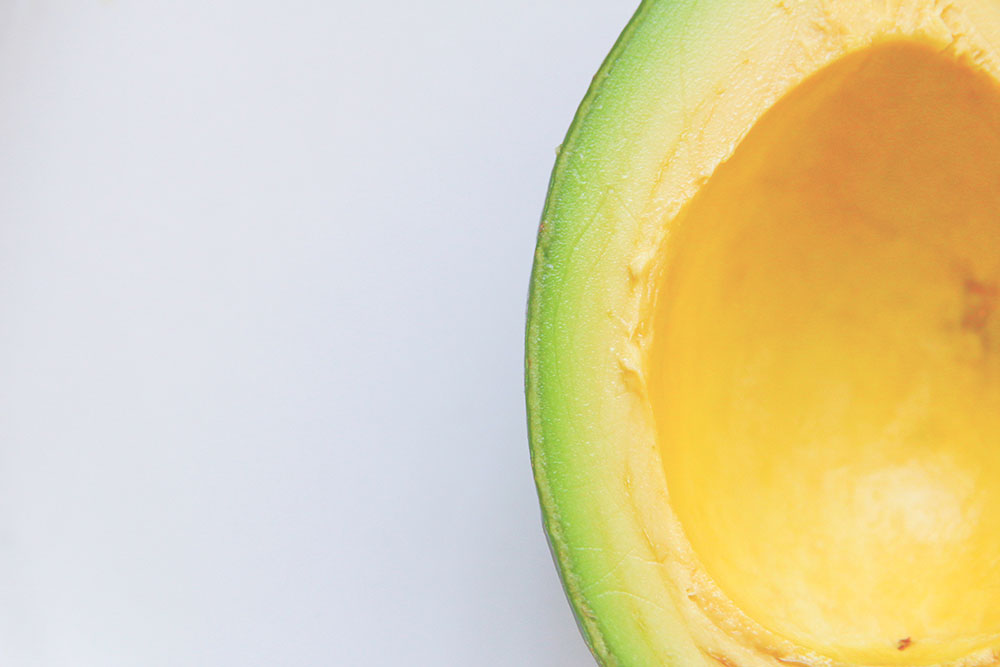For those who are trying to conceive, fats are important to consume. For both men and women, understand how to include more fertility-friendly fats in your diet.
BY: KENDRA TOLBERT, MS, RDN, CDN, CLC
Recently and fortunately, the long held idea that low-fat foods are inherently healthier than their higher fat counterparts has been challenged. Research studies and health professionals are singing the praises of fat, the once vilified macronutrient. We now know just how important the right fats are to our health.
Unfortunately, not everyone is on board yet.
After nearly two decades of having the medical and nutrition community (not to mention the media, our neighbors, friends, and mamas, too) tell us fat is public health enemy #1, it’s no surprise that it’s taking some time for people to fully embrace fat.
Contrary to what we were led to believe for so long, fat is not our enemy. If healthy skin, a well-nourished body that supports fertility, and a happy, peaceful mind are your goals, fat is definitely your friend.
What’s so great about fat?
There are so many reasons to enjoy fat containing foods. Fat plays s major role in hormone production, brain health, and absorption of essential nutrients like vitamins A, D, E, and K, as well as curcumin, phytonutrients, and other antioxidants. Plus, it keeps us fuller longer and it tastes delicious!
Of course, not all fats are made equal, and some are more desirable than others.
If there’s one fat to avoid, that would be trans fats. Man-made trans fats found in hydrogenated oils were finally banned by the FDA, although they won’t be completely out of the food supply until 2018. However, other naturally-occurring fats found in food have a role to play in maintaining good health.
Monounsaturated fats (found in almonds, avocados, olives) and polyunsaturated fats (in ample amounts in salmon, algae, and flaxseeds) are the fats that help promote a healthier heart and reduce inflammation.
Although once demonized for its purported role in raising heart disease risk, recent research indicates the link to saturated fat consumption isn’t entirely clear. And let’s not forget, many foods high in saturated fat are incredibly enjoyable to eat and contain vitamins, minerals, and protein. All of which promote optimal wellness, but of course, please still consume in moderation!
It’s so important to remember that we don’t eat isolated nutrients: we eat foods that are made up of many different nutrients. If we choose to avoid eating a food because of one so-called “bad” nutrient, we’ll miss out on all the other good ones that food has to offer.
That’s why a low-fat diet is one of the worst eating patterns anyone can follow if they are trying to conceive, now or in the future.
Unsaturated fatty acids, both mono- and poly-unsaturated fats, are protective against ovulatory infertility, while trans fats appear to increase the risk of ovulatory infertility. The same is true for low-fat dairy. Women who eat more full-fat dairy have lower risk of ovulatory infertility compared to women with higher low-fat dairy intake.
For men, fatty acids are a major component of sperm. Studies link a high Omega-6: Omega-3 ratio to infertility in men, and low DHA (one of the Omega-3s found in fish and algae) to poor sperm quality. Consuming good-quality fats is just as important to men’s fertility as it is for women.
Here are a few ways you incorporate more fertility-friendly fats in your meals and snacks:
- Use avocado or coconut oil to cook your eggs and eat the yolk.
- Add chia, flax, or hemp seeds to your morning smoothie.
- Slather a banana, apple, or pear with any nut or seed butter of your choosing
- Have at least 2 servings of low-mercury, fatty fish every week.
- Snack on nuts, seeds, or olives.
- Add sardines to your favorite pasta dishes.
- Use a mashed avocado as a mayo replacement on sandwiches.
Click here for more ideas on how to add more fertility-boosting fats.
HEADER IMAGE: GLEN CARRIE
Kendra Tolbert, MS, RDN, CDN, CLC is a registered dietitian nutritionist, certified lactation counselor, and certified aromatherapist based in Alexandria, VA. Through her private practice, she helps women and couples prepare for pregnancy and enjoy healthier, happier pregnancies. Learn more about Kendra at Live Fertile.

